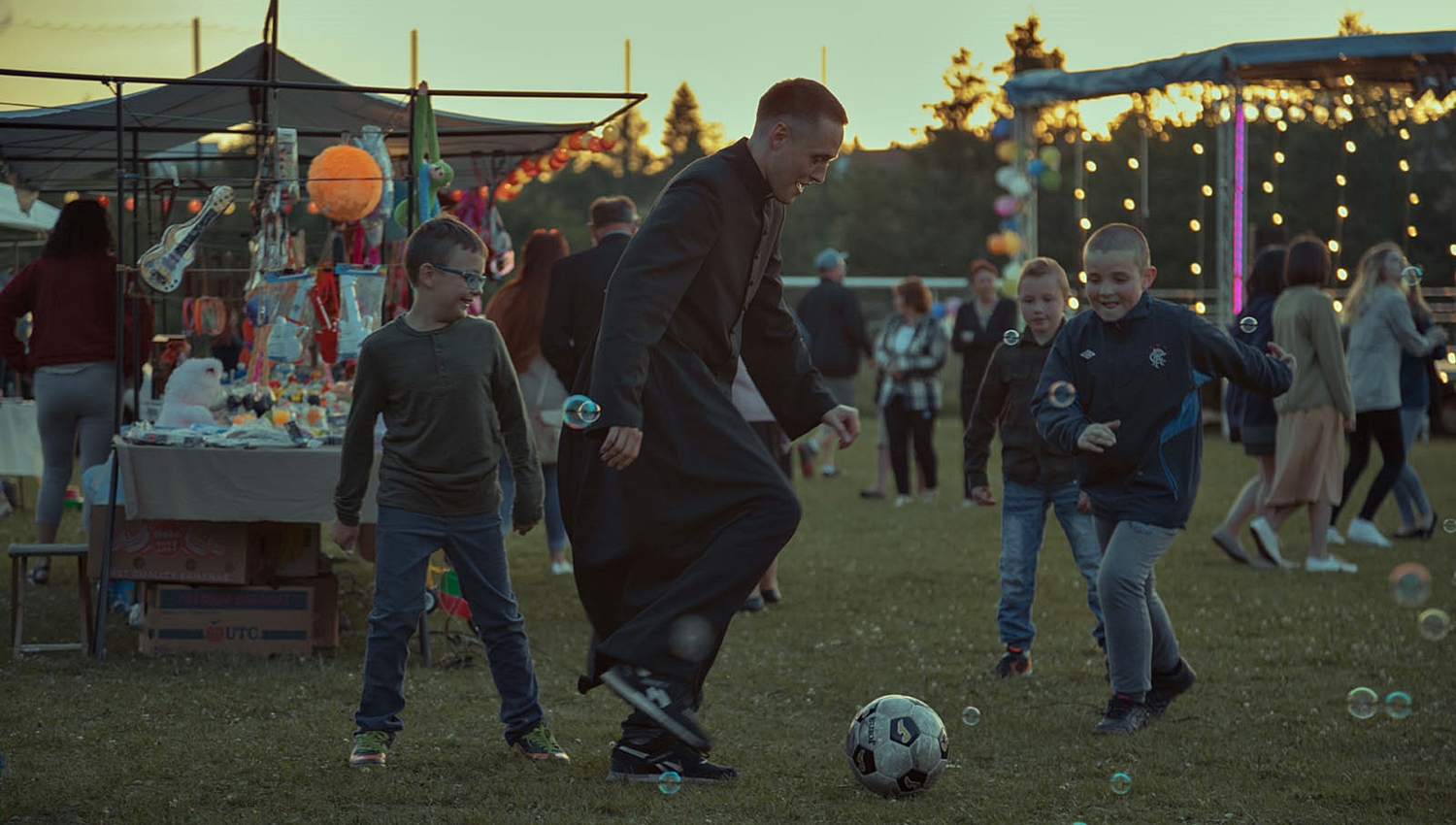
Corpus Christi
Dustin Chase
The moral ambiguity of “Corpus Christi” is one of it’s most compelling elements. A film I regret missing at TIFF 2019, despite it’s well promoted debut, is among the most provocative of this years International Films submitted for Academy Award consideration. From Poland, Jan Komasa directs the script by 27-year-old first-time feature film screenwriter Mateusz Pacewicz, inspired by young Polish men impersonating priests in rural towns. What they have delivered with “Corpus Christi” is a clerical film so unconventional that it makes “First Reformed” look like a Disney movie. While I think The Headbutting Priest would have been a more catchy title, those who discover this engaging and often suspenseful film, are left with a lot to mull over.
Daniel (Bielenia) can go from sexually assaulting a co-worker at the sawmill to singing hymns of praise within the hour. Such is the life of a juvenile serving out his sentence in rural Poland. The mandatory religious services led by Priest Tomasz (Lukasz Simlat) is recess for some, but Daniel takes it seriously, he wants to be a priest. Upon his release, Tomasz explains that his crimes and convictions prohibit him from joining the clergy. “There are other ways to serve God”, he comforts him. Daniel returns to a lifestyle of drugs and sex before realizing that he can be whoever he wants to be far enough away from those who know him. He puts on a robe, chooses a name and finds himself in charge of a small church with an ailing vicar. In order to stay hidden he must appear convincing, learning as he goes. His unconventional methods start to inspire the town suffering from tragedy until his past comes knocking on the confessional.
The unbiased narrative of “Corpus Christi” allows the viewer to alter their opinions of Daniel and the story as it progresses in the most unpredictable of turns.
What’s fascinating about how Daniel is written is that he isn’t just one thing or another, most characters aren’t, but the screenplay offers so much motivation to his actions, some even surprising to him. The unbiased narrative of “Corpus Christi” allows the viewer to alter their opinions of Daniel and the story as it progresses in the most unpredictable of turns. Irony is the weapon here, as Daniel’s respected fake priest accuses the townspeople of being unjust Christians. Can a wolf in sheep’s clothing stay hidden long enough to convince himself he is actually a lamb? What Daniel learned in juvenile detention proves the healing remedy one small town needed. He aids in bringing people together, instituting healing and fellowship.
Bielenia’s startling performance works in sync with the anticipation that his deception will be exposed at any moment. His buzzed blond hair, crazed smile and bulging eyes are the opposite image anyone has for a young priest. His robe and collar hide prison tattoos as he offers prayer and penance to the congregation. “Corpus Christi” doesn’t boast any fancy camera work, and the editing is straightforward. It’s the writing and performances that draws you in, never hinting where this very original story might end. If “First Reformed” was about a priest struggling with duty and conviction, “Corpus Christi” focuses on the easy manipulated congregation. It also suggests that perhaps the unconventional ideologies might do more good than outdated rhetoric.
Final Thought
One of the more provocative International Film submissions, Corpus Christi makes First Reformed look like a Disney movie.
